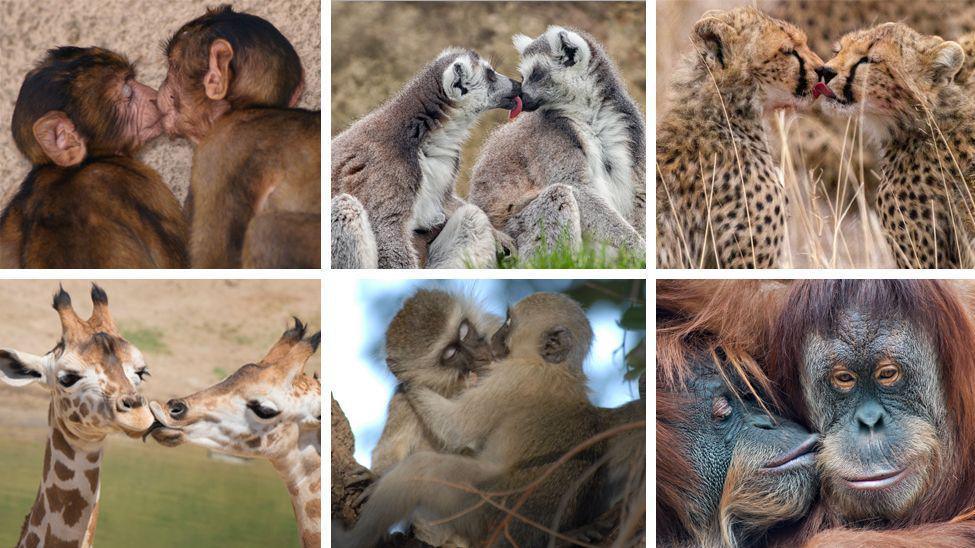When did the first ever first kiss take place?

- Published
Have you ever wondered why people kiss? Animals do it too, from monkeys to polar bears.
But scientists have always wondered why, as it has no obvious survival or reproductive benefits.
Now a study has suggested that mouth-on-mouth kissing actually began more than 21 million years ago.
Researchers have tracked back its origins and concluded that a common ancestor of humans and other great apes probably kissed too.
Experts hope a 'walking fish' can help explain how we evolved
- Published27 September 2024
Did you know there's an archive of ancient human brains?
- Published20 March 2024
Who was Charles Darwin?
- Published11 February 2022
To make sure they were comparing the same behaviour across different species, the researchers gave a 'kiss' a scientific definition.
They then attempted to reconstruct the history of kissing in the primate family tree, which includes monkeys, apes, and humans.
They now think it began sometime between 21.5 and 16.9 million years ago.
The study by the University of Oxford has been published in the journal Evolution and Human Behaviour.

The researchers found that many different animal species also kiss
"Humans, chimps, and bonobos all kiss," explained lead researcher Dr Matilda Brindle, an evolutionary biologist from the University of Oxford.
From that, she concluded, "it's likely that their most recent common ancestor kissed."
The research also found that early humans, such as Neanderthals, would likely have kissed before they died out around 40,000 years ago.
One previous piece of research on Neanderthal DNA showed that modern humans and Neanderthals shared an oral microbe - a type of bacteria found in our saliva.
This means Neanderthals and humans "must have been swapping saliva for hundreds of thousands of years after the two species split," Dr Brindle added.
